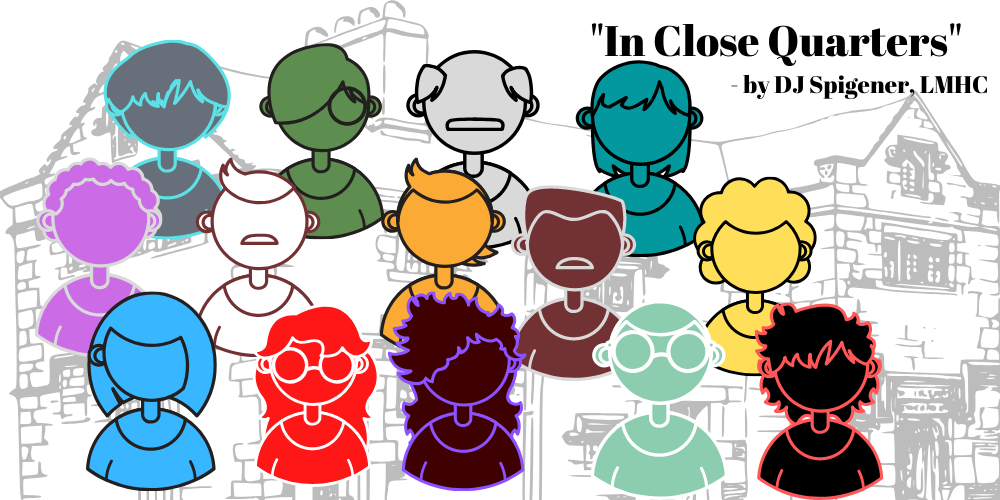3 Helpful Suggestions for Getting Along with the People Around Us While Stuck at Home
Even on the best of days, under the best of circumstances, conflict and arguments with those closest to us are facts of life. Given this truth, what should we expect under a nationwide stay-at-home order that is now in its second month? For most people who are stuck at home together, such drastic changes to our normal routines may bring unusually high levels of stress and anxiety, which can easily turn into frustration, anger, or fear if left unchecked.
With so many of our typical stress relief activities and coping skills potentially limited by social distancing guidelines, it may seem like we have no options to address and overcome these conflicts. However, all hope is not lost! Here are a few creative ways to help you and your family navigate these uncharted waters:
1. Communicate! This suggestion being placed at #1 is no mistake. When misunderstandings, unspoken frustrations, and emotional wounds are left unaddressed, they can begin to grow into full-blown anger and resentments. One of the most effective ways to avoid this is to ensure that we are accurately and respectfully voicing our needs, wants, expectations, thoughts, and emotions through healthy communication. Learning more about Assertive Communication Skills could also be beneficial to this end. Some families may prefer to set up regular “check-ins” with all members in the home where each is encouraged to share their reactions to this ongoing crisis, as well as any concerns they may have related to the home or family.
2. Keep Our Own Emotions In Check. Dialectical Behavior Therapy, a form of psychotherapy that helps clients to learn to cope with difficult or overwhelming emotions, contains a concept known as “the Wise Mind.” The Wise Mind is a balanced combination of our Reasonable Mind (the innate human ability to reason and use logic) and our Emotion Mind (our ability to experience a wide range of emotions and use intuition). While both the Reasonable and Emotion Mind are useful, in general, we make our best choices and decisions when operating from the more balanced Wise Mind perspective. When interacting and communicating with family members or roommates during this time, take care to ensure that your emotions are not overriding your logic (or vice versa) and that you are consciously considering both sides in order to make the “wise” decision.
3. Recognize That Everyone Handles a Crisis Differently. We each have our own ways of coping and surviving through a major crisis of this nature. While some may bemoan the loss of social opportunities and hobbies, others may find that being stuck at home for an extended period is comfortable and enjoyable. Some may find it prudent to absorb as much relevant information as possible in efforts to protect themselves, while others may become easily overwhelmed by the constant barrage of tragic developments and seek to avoid the media entirely. We must all do our best to practice kindness and empathy during this crisis, to remind ourselves that not everyone thinks, feels, or behaves in the same ways we might.
By slowing down and being intentional about the way we think, behave, and communicate with those around us, we are better able to express ourselves in a way that is genuine and helps all parties find a resolution to conflict, rather than further escalation. If you are struggling to get along with the people around you during this extended period of quarantine and social isolation, I hope that some of the tips and communication skills listed above may be of benefit.
To learn more about healthy communication skills, or if you feel that the issues you or your family are facing require a more personalized approach, please contact our office at (321) 332-6984.
DJ Spigener, MA, LMHC
Total Health Guidance
321-332-6984







